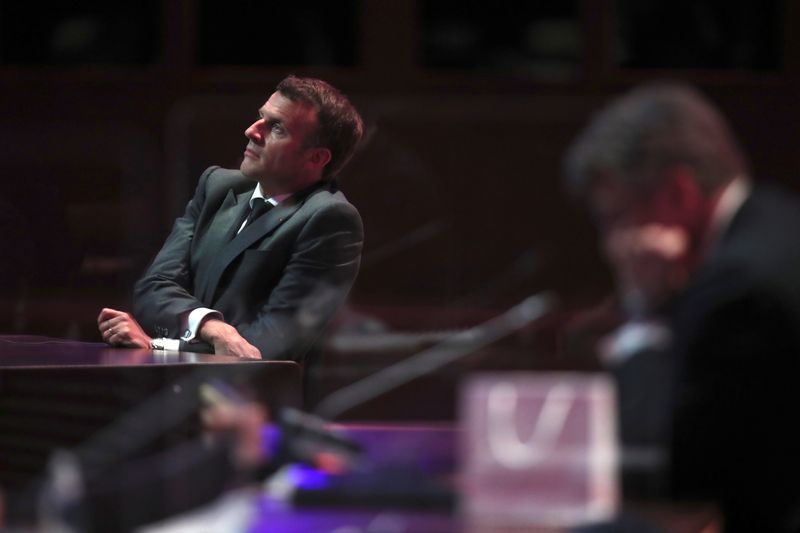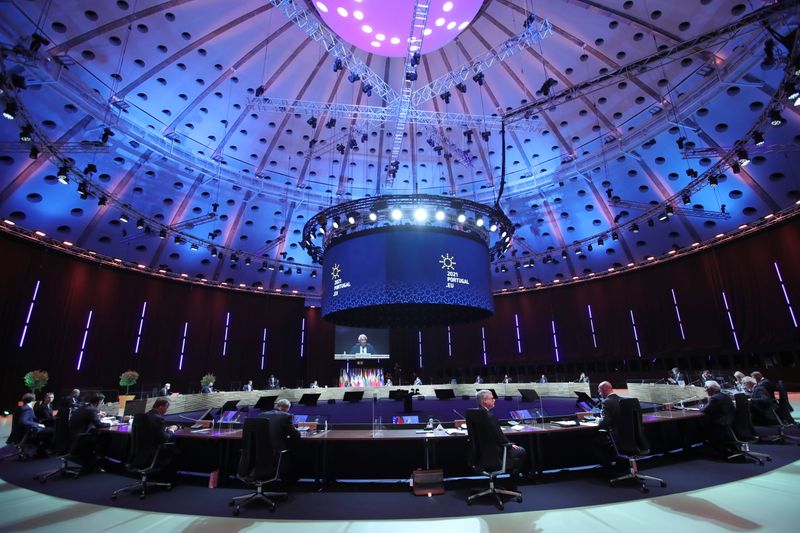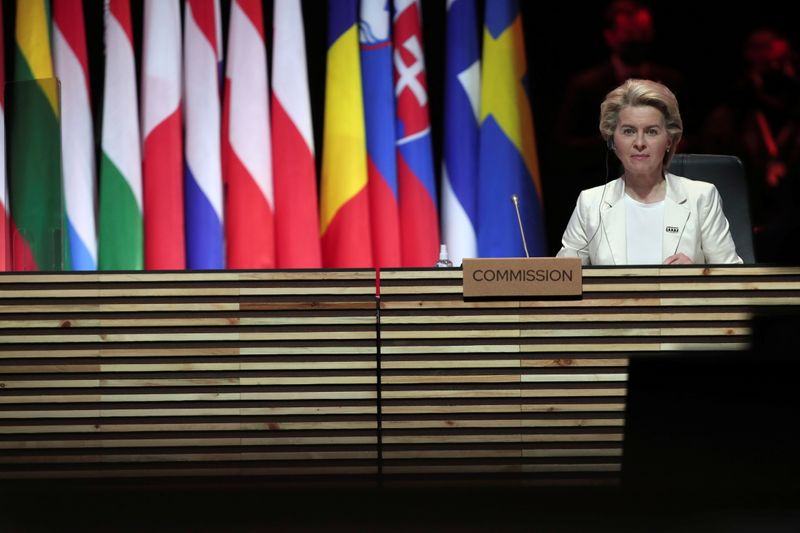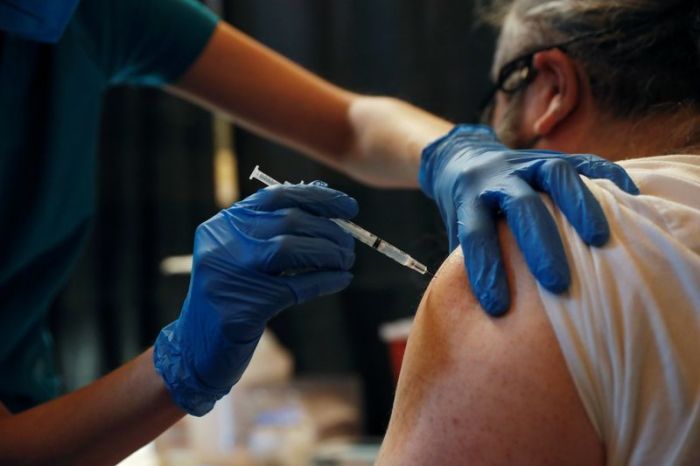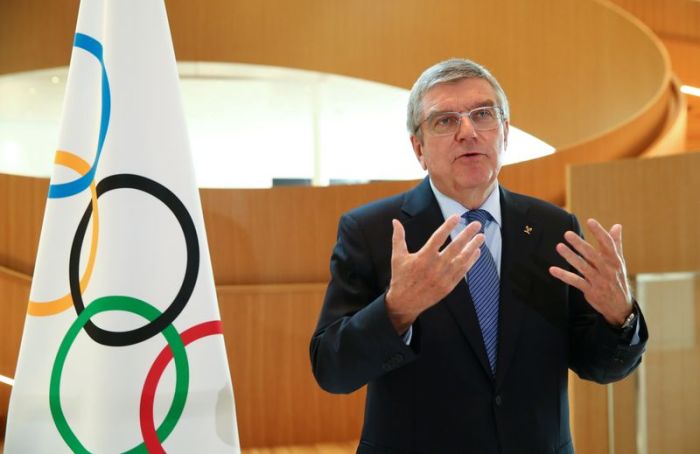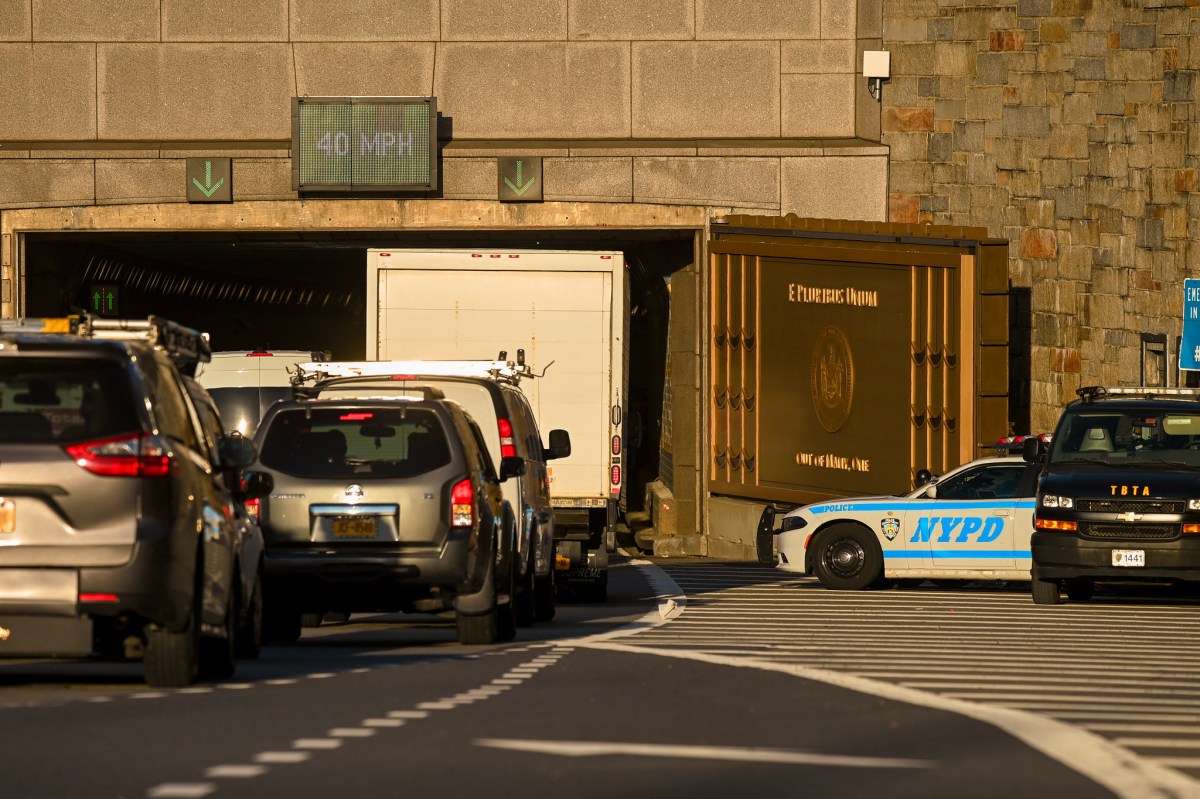BRUSSELS (Reuters) – European countries distanced themselves on Friday from a proposal backed by U.S. President Joe Biden to waive patent rights on coronavirus vaccines, arguing that key to ending the COVID-19 pandemic was making and sharing vaccines more quickly.
French President Emmanuel Macron said the question of sharing patents was not the issue of the day, and called out Britain and the United States for blocking the export of vaccines and their ingredients to the wider world.
Leaders of the 27-nation bloc were due to discuss the suggestion to share vaccine intellectual property at a two-day summit that opened in the Portuguese city of Porto on Friday, but they were divided on its usefulness.
Experts say waivers could take years to negotiate, and would not address the immediate need to manufacture more doses fast.
“What is the current issue? It is not really about intellectual property. Can you give intellectual property to laboratories that do not know how to produce and will not produce tomorrow?” Macron said as he went into the summit.
“The main issue for solidarity is the distribution of doses,” he said, adding that France was working hand in hand with Germany on the issue. Berlin expressed its opposition to the idea on Thursday.
The EU, which is among the biggest producers of vaccines in the world, is also the main exporter, with 200 million doses already shipped outside the bloc. The United States and Britain have not exported any of the vaccines they have made.
Macron lashed out at both.
“In order for the vaccine to circulate, the ingredients and the vaccines themselves cannot be blocked. Today the Anglo- Saxons block many of these ingredients and vaccines,” he said.
European Commission President Ursula von der Leyen echoed that, telling a news conference after the first day of the Porto summit that the EU should be open to a discussion on the patents but sharing the technology was no quick remedy for the pandemic.
“In the short and medium term, the IP waiver will not solve the problems, it will not bring a single dose of vaccine in the short and medium term,” she told a news conference.
Biden on Wednesday backed a call from India and South Africa to waive patent protection for COVID-19 vaccines, responding to pressure from Democratic lawmakers and more than 100 other countries, but angering pharmaceutical companies.
Some EU officials argue that it could take two years to agree on the waivers in the World Trade Organization (WTO), most likely making it irrelevant to the current pandemic.
DIFFICULT PROCESS
EU leaders are likely to hear advice from the bloc’s executive, the European Commission, that a waiver would not help boost production, especially in poorer countries, as the manufacturing process requires advanced technologies and facilities, officials said.
The U.S. firm Moderna waived patent rights in October on its vaccine, which uses using the latest mRNA technology, but no other firm has yet announced that it will try to copy the shot.
Germany, home to BioNTech, which owns a patent on another mRNA vaccine developed jointly with Pfizer of the United States, opposes waivers, while Italy supports them, EU officials said.
While the pandemic rages, the chances are high that even more dangerous new variants of the coronavirus will emerge.
The pharmaceutical industry argues that the most expedient approach is to overcome existing production bottlenecks, and sell or donate vaccines to countries around the world. Several EU countries and institutions share that view.
“No one we will be safe until we all are. If vaccination takes place only in developed countries, our victory over COVID-19 will only be short-lived. We are seeing how quickly the virus is mutating, creating new variants that entail new challenges,” the leaders of Belgium, Sweden, France, Denmark and Spain said in a joint letter to the Commission.
“Vaccines have become security policy and the EU cannot afford to lag behind; to this end, an increased European production capacity will be a key priority,” they said.
(Additional reporting by Marine Strauss and Sabine Siebold, Editing by William Maclean)

